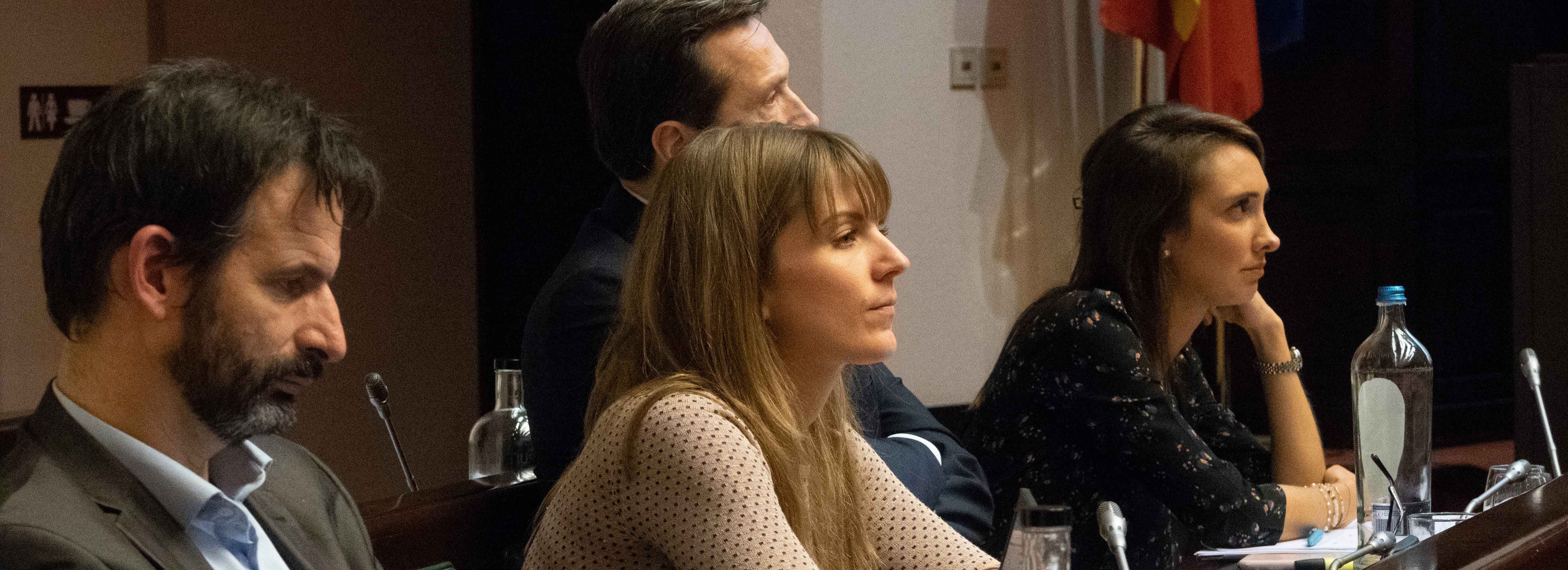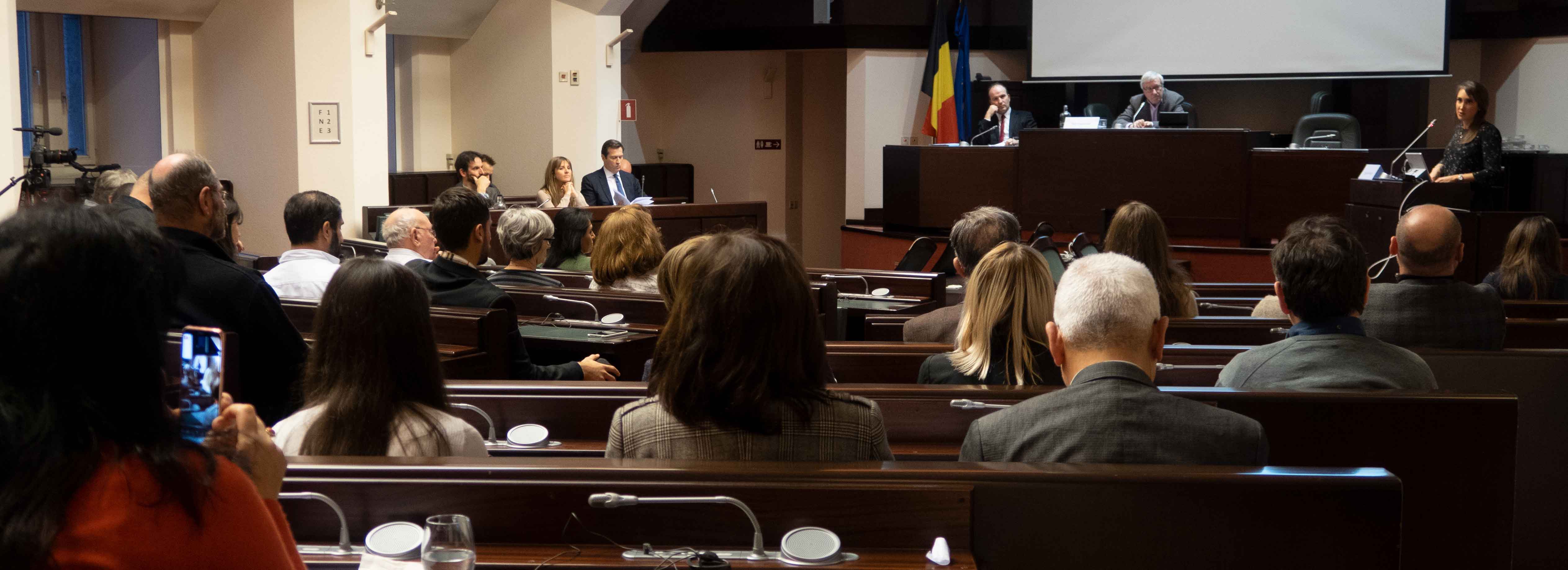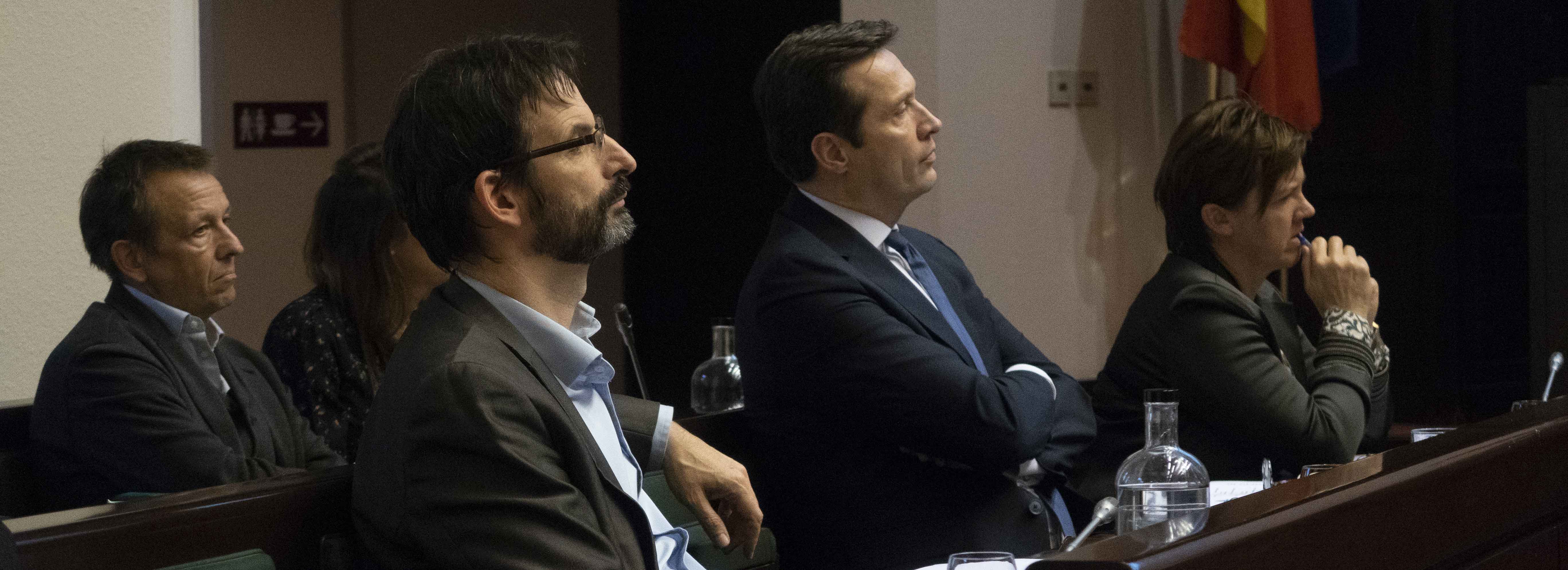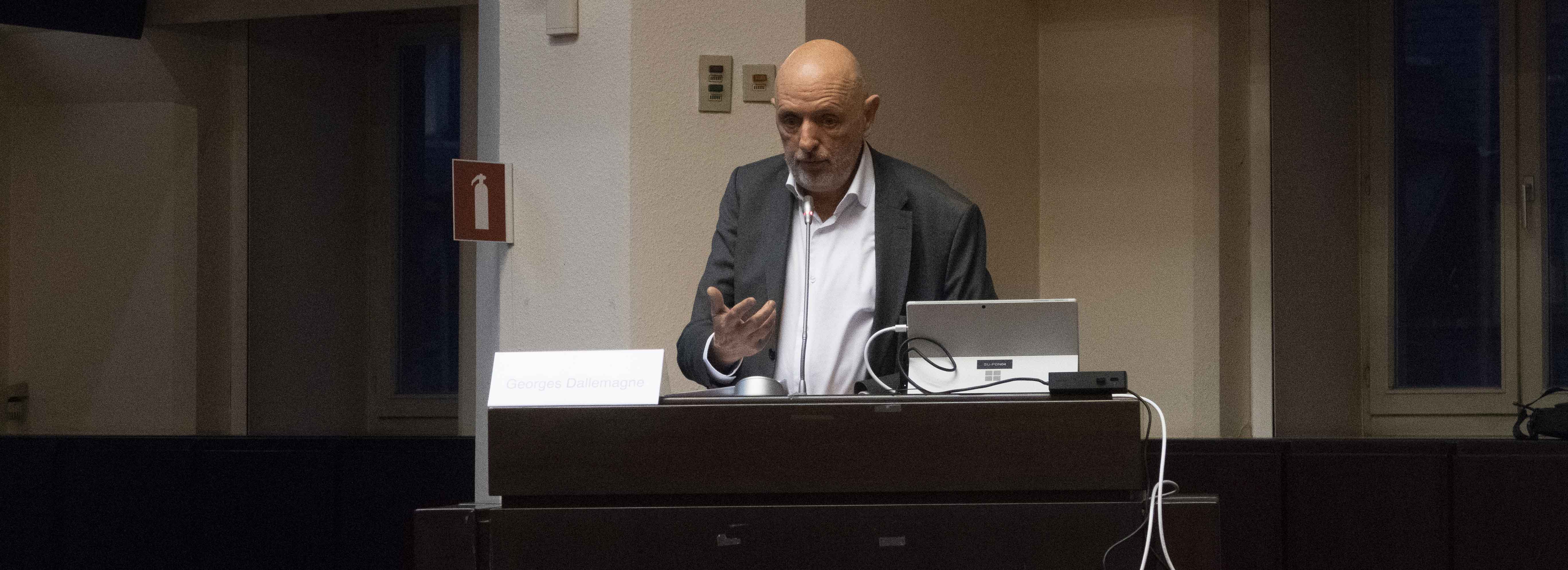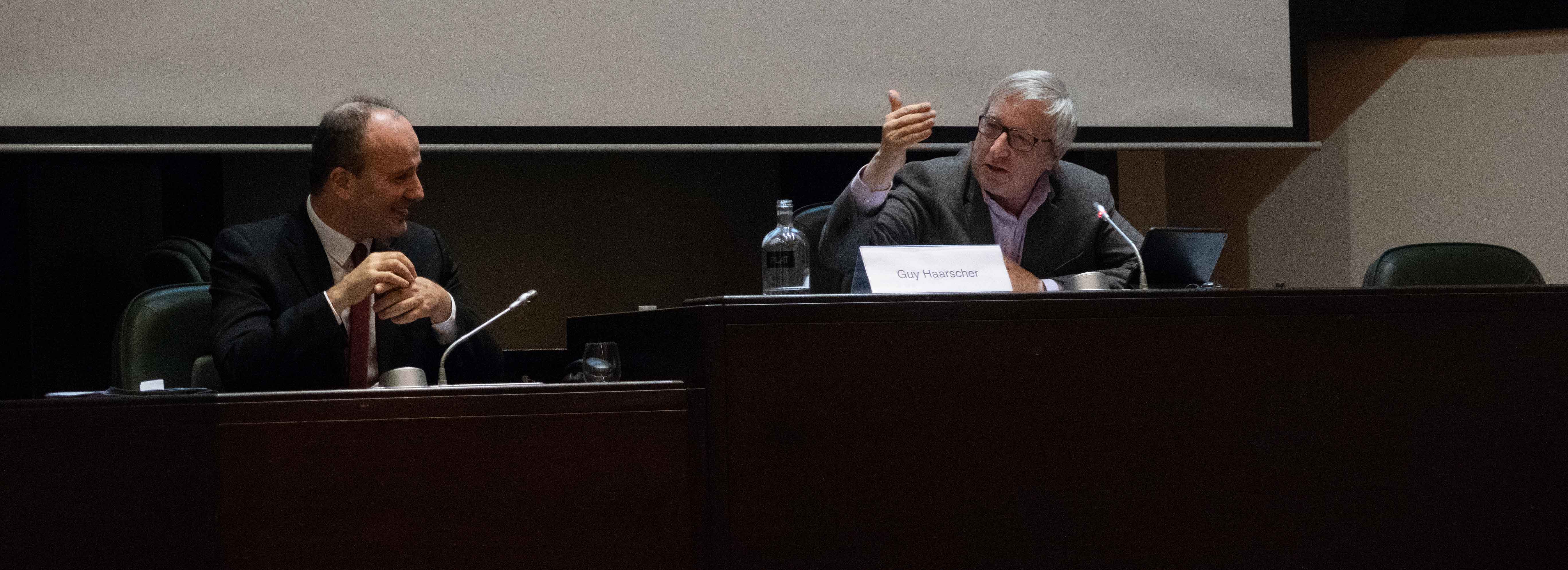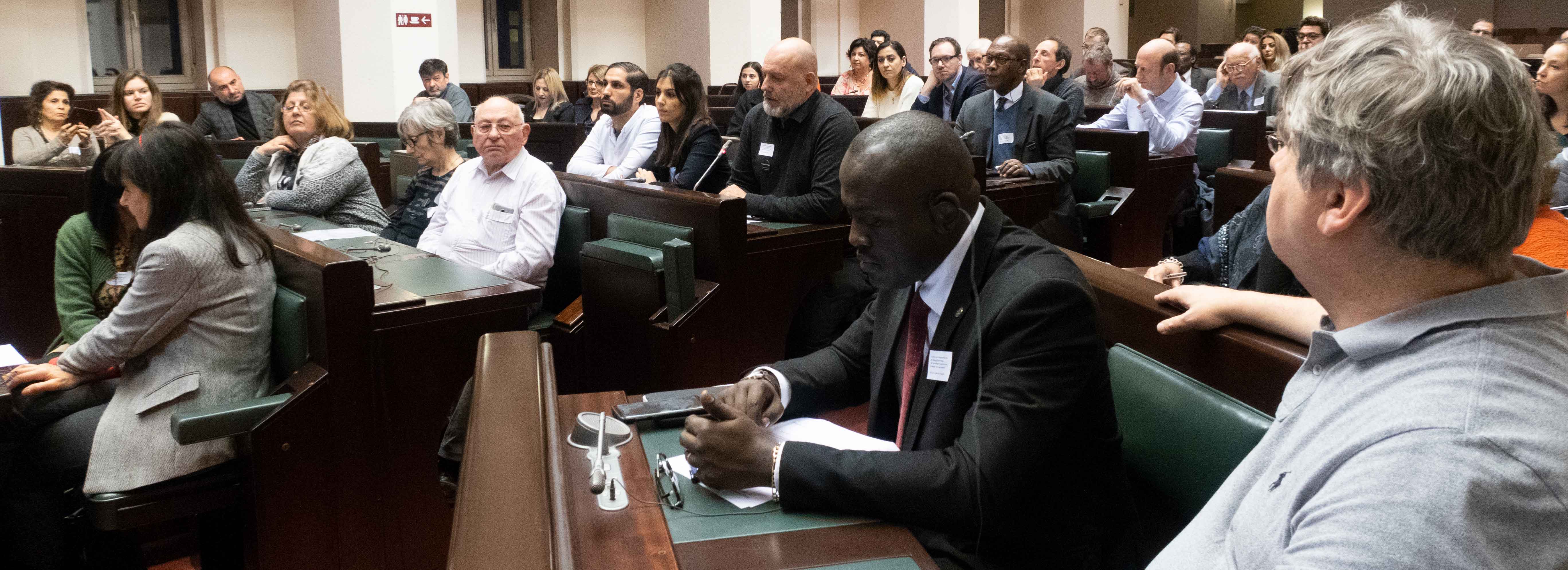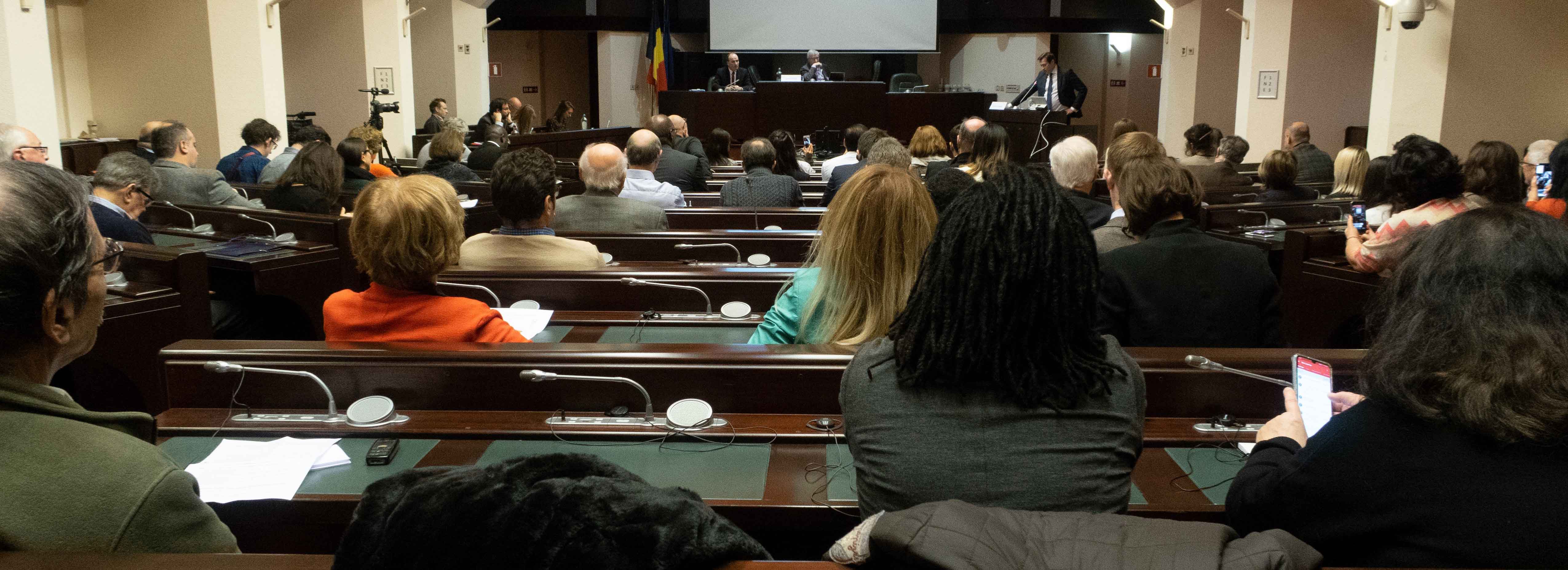19 December 2019
To watch the videos of the speakers, click HERE
On December 9, on the 71st anniversary of the signature of the UN Genocide Convention, the Federal Parliament in Brussels hosted a conference organized by the Belgian Collective for the Prevention of the Crimes of Genocide and Against Negationism, in partnership with AGBU Europe. The conference brought together lawyers, experts and policy makers to take stock of the recent Belgian legislation banning the denial of genocides and other mass atrocities.
About a hundred people attended the conference moderated by Professor Emeritus Guy Haarscher of the University of Brussels (Université Libre de Bruxelles – ULB). While the first panel examined the current situation regarding the repression of negationism and hate speech, in Belgium and in Europe, from the legal point of view as well as from actors on the ground, the second panel, composed of MP’s from different political parties, focused on the law voted last April and the proposals to amend it.
The audience was reminded that the law adopted on April 25 by the Belgian House of Representatives, to transpose a European Union “framework decision” and a Council of Europe Convention into Belgian legislation, introduced for the first time in Belgium, the principle of criminalizing the denial of crimes other than those committed by the Nazi regime from 1939 to 1945. However, it was also specified that while extending criminalization to the denial of mass crimes in general, the new law also excludes from its scope crimes that have not been recognized by an international tribunal, such as the Armenian genocide.
In her speech, Nathalie Drouin, legal expert and lecturer at the University of Bourgogne, explained how, in a very awkward way, the framework decision of the EU is inconsistent with the prime objective of the law, which is to fight racism. By introducing the criteria of the judicial recognition of the crime, Drouin observes that “the ratio legis of the offence is no longer the fight against hate speech, discrimination or racism, but that the ratio legis is the protection of the judicial authority”. In view of this paradox, Emmanuel Van Nuffel, a lawyer at the Brussels Bar, presented the appeal brought to the Belgian Constitutional Court by the Armenian community of Belgium against the new law adopted in April 2019.
Patrick Charlier, co-director of Unia, the government anti-racism watchdog in Belgium, a platform against racism in Belgium, gave a presentation on discrimination and hate speech in the country and on the concrete consequences of the existing laws against discrimination. Unia regularly prosecutes groups and individuals on account of the denial or justification of the Holocaust. According to Charlier, more than 50% of the non-Holocaust denial complaints received by Unia relate to the denial of the Armenian genocide.
In the second panel, several MP’s from a wide range of political parties took the floor to defend their position regarding the law adopted in April and informed the public of the new draft laws to amend it or fully replace it. MP Georges Dallemagne stressed the need for MPs to work together to bring to fruition a bill that will effectively correct the shortcomings of the law passed last April. In addition, MP Michel de Maegd presented a draft law he recently submitted to officialise December 9 in Belgium as the international and national day that commemorates the victims of genocide around the world.
The conference ended with the intervention of Bernard Maingain, a lawyer at the Brussels Bar, who alerted the parliamentary assistance of the alarming situation in Burundi, where there is reason to fear that a genocidal process against the Tutsis is under way. He reminded the audience of the topicality of the phenomenon of genocide and mass persecution and the possible actions that can be taken today to slow down the process under way in Burundi.
Ina Van Looy, coordinator of the Belgian Collective, shared her satisfaction for the successful holding of the conference: “I would like to thank AGBU Europe for having involved the Collective with this event, spearheaded by Guy Haarscher, and all the members of the Collective who contributed to the success of the conference. The next step is to consider the possible follow-ups to the conference, including regarding the emergency situation in Burundi.”
*The Belgian Collective for the Prevention of the Crimes of Genocide and Against Negationism is composed of members of Jewish, Tutsi, Assyrian, Armenian and Aramaic organizations.

